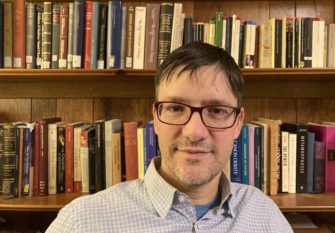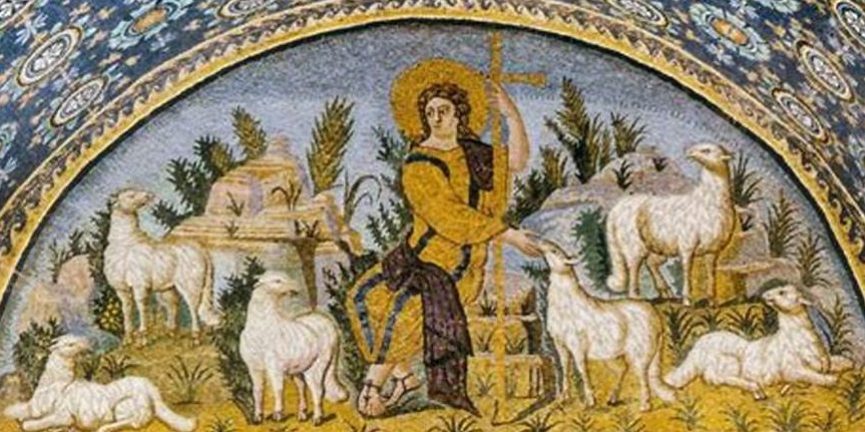A Surprising Study of Early Christians’ Belief and Practice
By Reginald Bowens, Marketing Assistant for Summer@Eastman
Pictured: Good Shepherd Mosaics. Mausoleum of Galla Pacidia, Ravenna (ca. 425 AD)
Greetings, Friends! I had the wonderful privilege to speak with instructor Eric Scherbenske about his upcoming Summer@Eastman course! Here’s what he had to say:
What do you look forward to mostly in the Varieties of Christianity course?

Eric Scherbenske
Primarily, just having an opportunity to introduce students to the tremendous diversity of early Christian thought, belief and practice, at a time it was still developing. Students will probably have read some of the texts before. Other things will be unfamiliar to students and will offer a completely different interpretation and understanding of who Christ was, and how one should properly be a Christian at that time. Ways that Christianity did not develop, eventually, but that were options for some at the time, though to bet the most logical and appropriate way to understand Christ and His teachings. It is fascinating and very exciting, and students are usually very surprised at what they find out when they sit down and read the materials from a historical perspective, and look at them in their context, in relation to the other texts that we will also read.
Do participants need to have prior experience with Christianity, and will it help?
The short answer is no. You need no prior knowledge of Christianity, or early Christianity, in particular. In general, it can cut both ways – having prior knowledge and experience. On the one hand, it can sometimes make the conversations more theologically difficult for students because they’re used to reading it one way, and now they’re trying to read it in a different way. People who come with prior knowledge usually come with some sort of investment, and that’s great because they’re interested in the material, but on the other hand, most people know about who Christ was and they know about Christianity, so they have some idea. However, having nothing much more than that is also great because then students are just free to read the text and have no preconceptions. You just read those texts for what they say. In a way, those who have a vested interest in them just have a different relationship. So, that’s the long answer to a very easy question. The answer is no; there’s no prior knowledge necessary.
What is your connection to the topic or how did you get started with learning about religion and theology?
As an undergraduate, way back some time ago, I read a collection of early Christian texts that were only found in the early 20th century. They were buried in the sands of Egypt for some time, and only were from about the 4th century C.E. They were found, then published, and now you can read them, so they offer a completely different view of what it was like to be a Christian at the time. This is nothing really spectacular or new as scholars are always finding new texts. But it inspired me to learn about the fascinating world of early Christianity, and eventually, this interest led me to pursue a PhD in religious studies at University of North Carolina Chapel Hill.
***
Varieties of Christianity – ONLINE runs June 24-August 2, 2024. Visit the course web page for more information.
